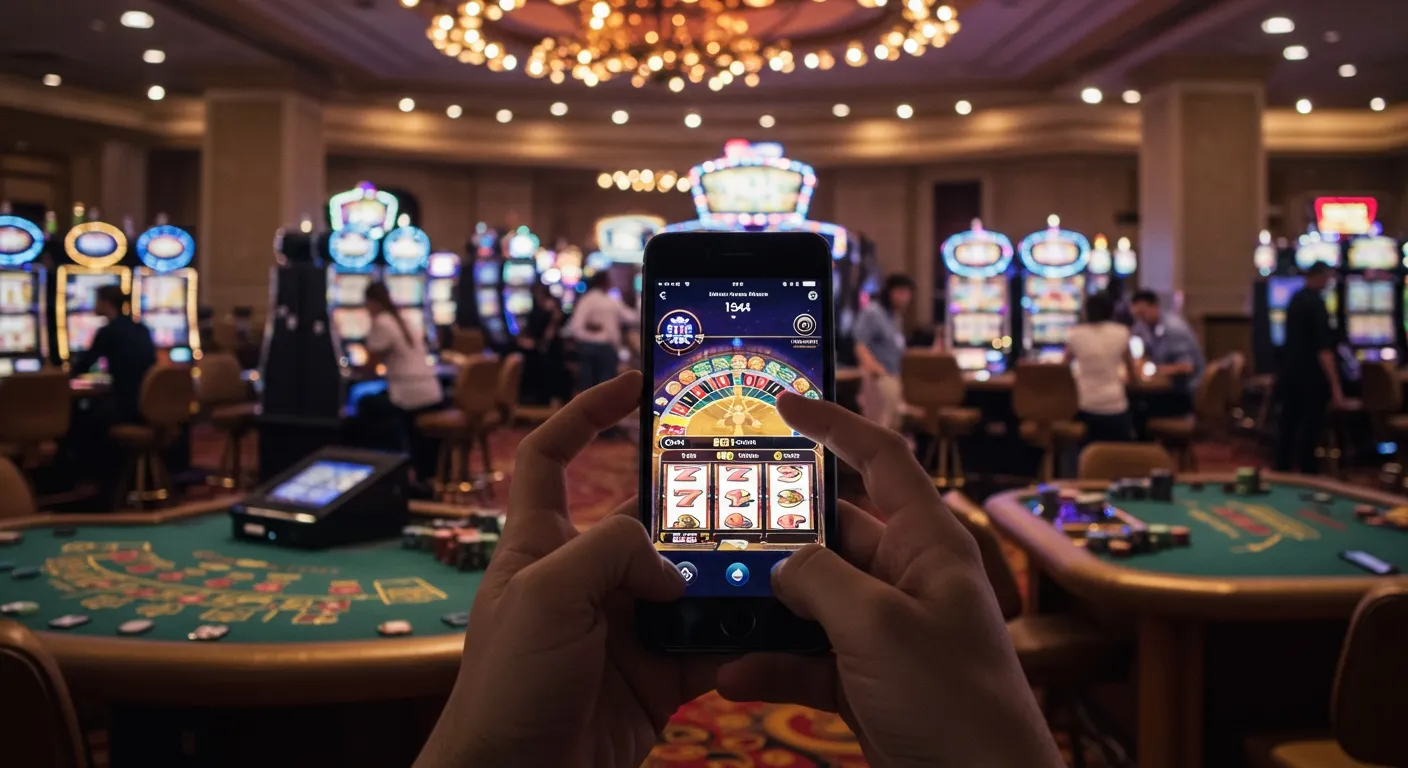The world of online gambling has evolved far beyond simple slot machines. With the rise of digital sportsbooks, live casinos, and virtual gaming platforms, betting online has become an ever-present form of entertainment. Yet, this accessibility raises an important question: Are online bets more addictive than slots?
It’s a debate that psychologists, researchers, and players themselves have discussed for years. While both online betting and slot gaming can trigger the same dopamine-driven excitement, their structure and pacing affect the brain in very different ways. Understanding these differences can help players stay aware of their habits and make more responsible choices.
The Psychology Behind Gambling Addiction
At its core, gambling addiction isn’t about money — it’s about the brain’s reward system. Both online betting and slot machines trigger a release of dopamine, the neurotransmitter linked to pleasure and anticipation. The unpredictability of results creates a cycle of excitement and risk-taking.
In slots, this happens rapidly. Every spin delivers an instant result, and that quick loop of risk and reward can hook players into continuous play. Online betting, on the other hand, involves slower pacing. You might wait minutes, hours, or even days for an outcome, especially in sports betting. The slower rhythm makes it feel less compulsive — but it can be deceptive. The emotional investment in outcomes can drive players to chase losses or double down on future bets.
Addiction researchers often describe this as “the illusion of control.” In slots, players have no control over outcomes. In online betting, they believe they do — studying statistics, analyzing odds, or following sports trends. That belief creates a stronger emotional pull, which can make online betting just as habit-forming, if not more.
Why Online Betting Feels Different from Slots
Slots are designed for instant gratification. Every spin delivers a clear win or loss within seconds. Online betting feels more strategic — you’re choosing teams, studying performance charts, or comparing odds. It gives the sense of skill-based participation rather than pure chance.
However, that perception is often misleading. Many players overestimate their influence over outcomes, interpreting lucky wins as signs of personal expertise. The psychological reward of being “right” can be stronger than the thrill of luck itself. That makes online betting uniquely addictive for people who see themselves as analytical or competitive.
Platforms that feature best uk betting sites often combine live data, streaming, and in-play wagering — meaning you can adjust your bets during the match. This constant engagement keeps the player mentally involved and emotionally hooked. The experience feels interactive, even immersive, compared to pressing a button on a slot machine. But that interactivity also prolongs exposure, extending the time a person remains psychologically tied to the game.
The Speed Factor: Instant vs. Extended Engagement
When comparing addiction risks, one of the biggest differences between online bets and slots lies in speed. Slots offer rapid cycles — you can spin hundreds of times in an hour. This pace creates a strong behavioral loop: risk, result, reward, repeat. The brain quickly learns to crave that rhythm.
Online betting is slower, but that doesn’t make it safer. In fact, delayed gratification can heighten obsession. A bettor who places a wager on a football match might spend hours monitoring updates, tracking odds, and anticipating outcomes. This prolonged engagement feeds the same reward system — but over a longer emotional cycle.
This means that online bettors are not necessarily playing “faster,” but they’re often thinking about gambling for longer. Slots might trap you in rapid-fire spins, but betting can occupy your mind for an entire day. In both cases, the psychological attachment to outcomes becomes the addiction trigger.
Accessibility and the Modern Betting Environment
One of the reasons online betting has become more addictive is accessibility. A few years ago, gambling meant walking into a casino or arcade. Now, anyone can open an app and bet on virtually anything — sports, politics, esports, even reality shows.
This accessibility makes it easier for habits to develop quietly. Betting doesn’t feel like gambling in the traditional sense — you can do it while watching TV, commuting, or scrolling social media. Because it fits seamlessly into daily life, players may not even realize how much time or money they’re spending.
Slots, on the other hand, still carry the image of a “casino activity.” They’re less normalized in everyday contexts, even if available online. That cultural perception can act as a subtle barrier. But betting, especially on popular sports, feels like part of the mainstream entertainment experience.
Emotional Triggers: Hope, Control, and Loss
The addictive nature of gambling isn’t only tied to winning — it’s also about the hope of winning. Every spin or bet represents potential victory. But in online betting, the emotional attachment is much deeper because it often connects with personal interests like favorite teams, sports, or national pride.
That personal connection amplifies both highs and lows. Winning a bet can feel like validation — proof that your analysis or intuition was correct. Losing, however, feels personal too. That emotional rollercoaster often leads to the dangerous “chasing losses” behavior, where players bet larger amounts to recover what they’ve lost.
Slots are different: the losses feel less personal and more mechanical. There’s no sense of control, which can actually make it easier to stop. In contrast, betting convinces you that you can turn it around — that the next match, or the next strategy, will be different.
Technology’s Role in Amplifying Addiction
Modern technology has transformed online gambling from a casual hobby into a 24/7 experience. Algorithms personalize offers, track behavior, and deliver real-time notifications designed to keep players engaged. Betting apps make deposits seamless, removing the friction that once gave players time to reconsider.
With slots, the interface is simpler and more repetitive. In betting, the digital experience is immersive and data-driven. Many apps push instant updates — odds changes, score alerts, and cash-out options — ensuring players never mentally detach from the game. This constant stimulation increases cognitive engagement and makes stepping away harder.
The more connected a bettor feels, the stronger the habit becomes. Even when not actively betting, the anticipation — checking stats, following updates, or waiting for results — sustains the addiction loop.
Balancing Enjoyment and Responsibility
The key to preventing gambling addiction isn’t to demonize either form but to recognize triggers early. Both online betting and slots can be enjoyed responsibly when approached with structure and awareness. Setting limits, using self-exclusion tools, and maintaining clear budgets are crucial steps.
Betting sites today often include built-in tools for responsible gaming. Many allow deposit limits, time reminders, or self-exclusion periods. Players who understand these tools and use them proactively tend to stay in control. Slots, while more repetitive, also benefit from features like “reality checks” that remind players of session length or spending.
It’s also worth noting that online betting addiction tends to escalate more subtly than slot addiction. Because it feels more strategic and social, people are less likely to recognize it as a problem. This makes education and awareness even more essential.
Final Thoughts: Which Is Truly More Addictive?
So, are online bets more addictive than slots? The answer depends on how we define addiction. If we look at frequency and rapid reward cycles, slots can be more immediately habit-forming. But in terms of emotional attachment and psychological immersion, online betting often runs deeper.
Slots trap players in quick loops of excitement, while betting creates an ongoing cycle of emotional investment, analysis, and anticipation. Both appeal to the same reward system in different ways — one through speed, the other through engagement.
In the end, neither form is inherently worse than the other. What matters is how they’re used. Responsible play, self-awareness, and understanding one’s limits can turn gambling back into what it was meant to be — entertainment, not obsession.




